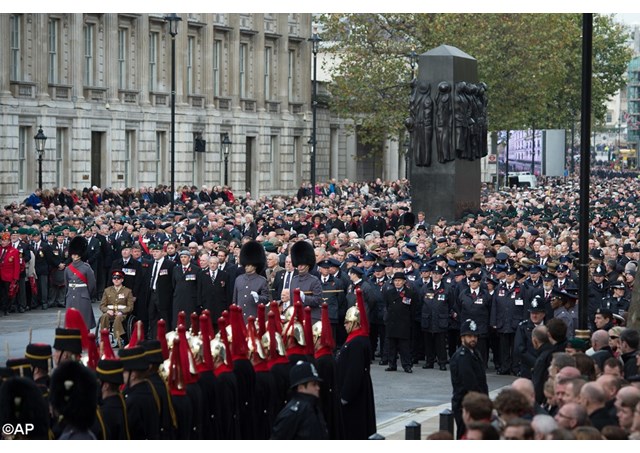
Lest we forget: the Irish in WWI

(Vatican Radio) Events have been held across the UK to mark Remembrance Sunday. At the Cenotaph in London wreaths were laid to commemorate those who have lost their lives during conflicts.
This year marks the centenary of the start of the First World War and for the first time the Irish ambassador to the UK laid a wreath at the monument.
The British government said the invitation was in recognition of the “the immense contribution and shared sacrifice made by many thousands of Irish men and women who have served in the British armed forces”.
More than 200,000 Irish soldiers fought in the British army during the Great War.
Listen to Lydia O’Kane’s interview with Dr Jerome Aan de Wiel, an historian and lecturer at University College Cork
Dr Jerome Aan de Wiel, is an historian and lecturer at University College Cork who was recently in Rome to participate in an International Congress entitled “Useless Slaughter: Catholics and the Holy See in the First World War”. His topic was Irish Catholics during the First World War.
Speaking to Lydia O’Kane about the Irish who went off to fight for King and country, he said, it is only relatively recently that Ireland discovered that she had participated in the First World War because since the creation of the Irish Free State in 1922 the emphasis was laid on the Republicans in the Easter Rising in April 1916 and not on those thousands and thousands of Irish soldiers who joined the British Army and who fought in France…
He said that when the soldiers first went off to fight under British colours they were viewed well back home, but that changed when the horrors of war became known and when it was seen that Home Rule in Ireland was not being implemented. He went on to say that “a very bad Irish policy from the war effort which consisted in negating, denying almost the patriotism of Irish Nationalism at the front in France. Well because of all these factors very quickly the popularity of the war of December of 1915 onwards diminishes quite quickly.”
When the war ended in 1918 many of these soldiers who came back, “were regarded as traitors”, said Dr Aan de Wiel,”some were assassinated, they were assassinated by the Irish Republicans because they believed they were traitors and sometimes they were even assassinated by the Black and Tans and the British forces because they believed that these soldiers could help the IRA with the experience that they had gained at the front. So you see they were in a very difficult and a very sad situation and this would lead to their oblivion…for many decades.”
| All the contents on this site are copyrighted ©. |


